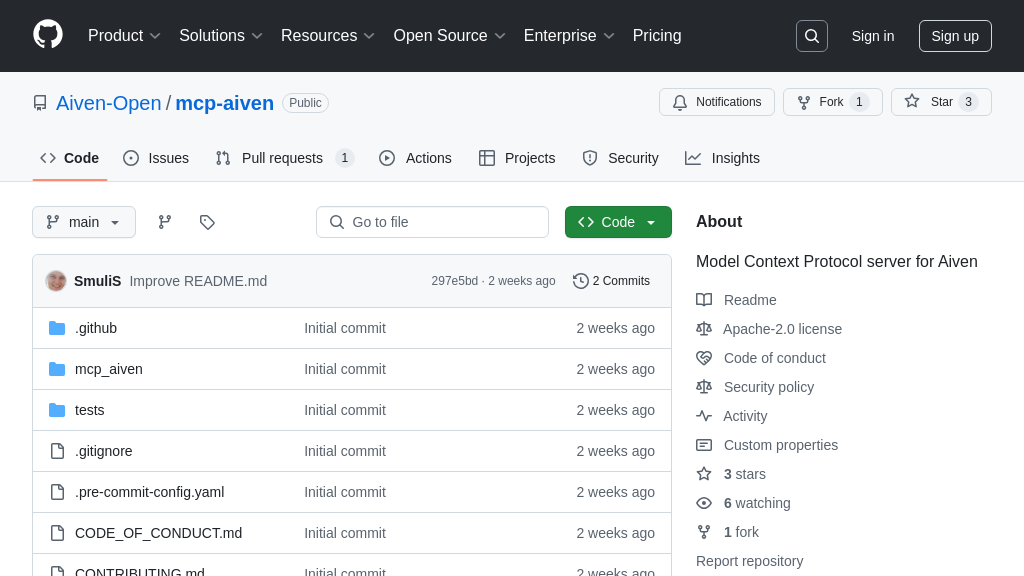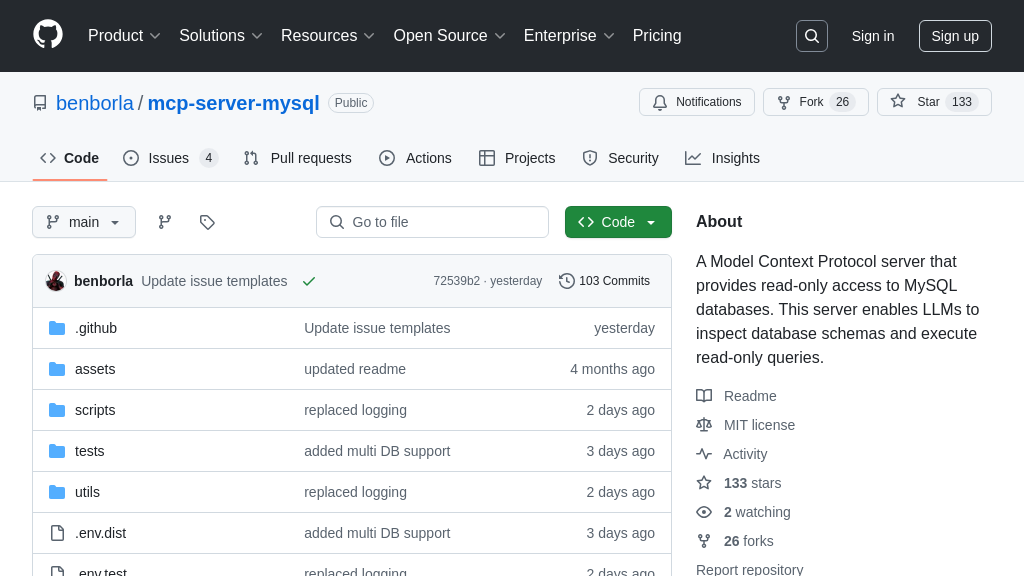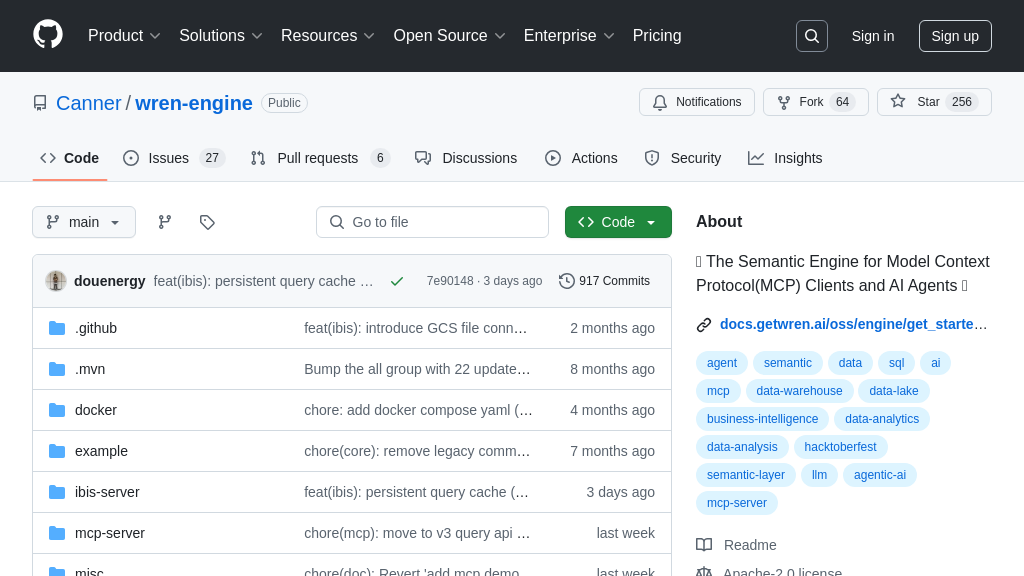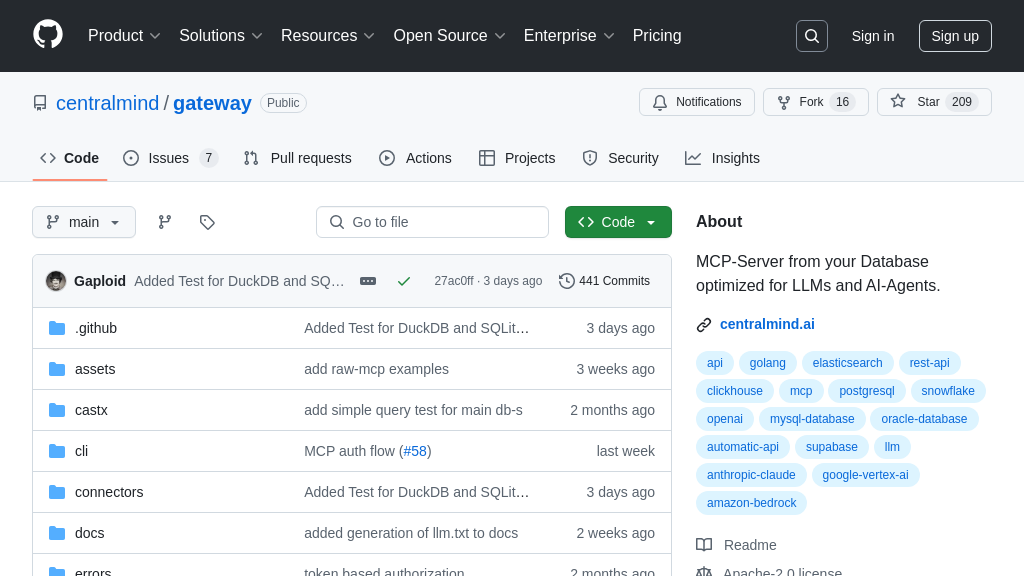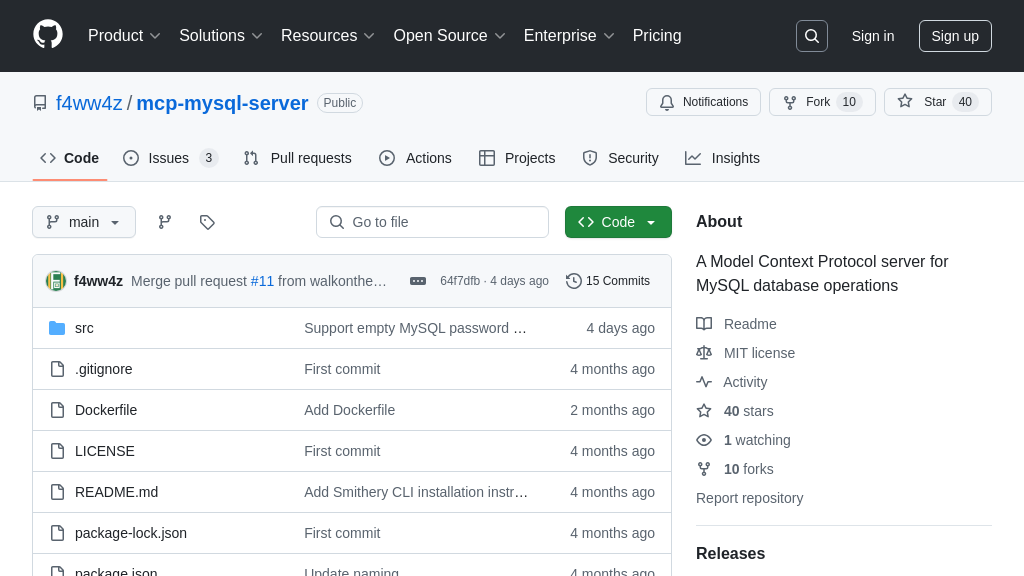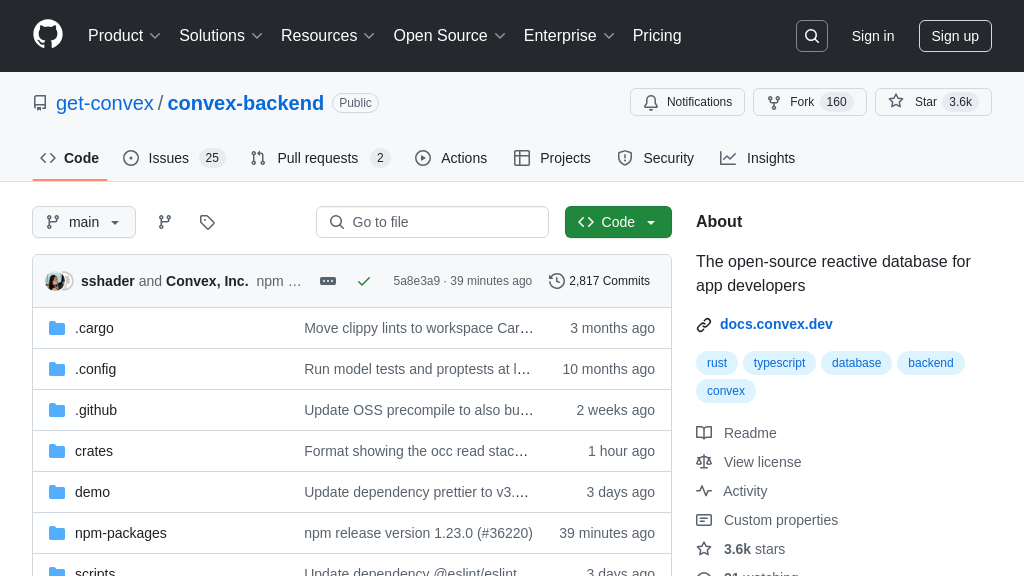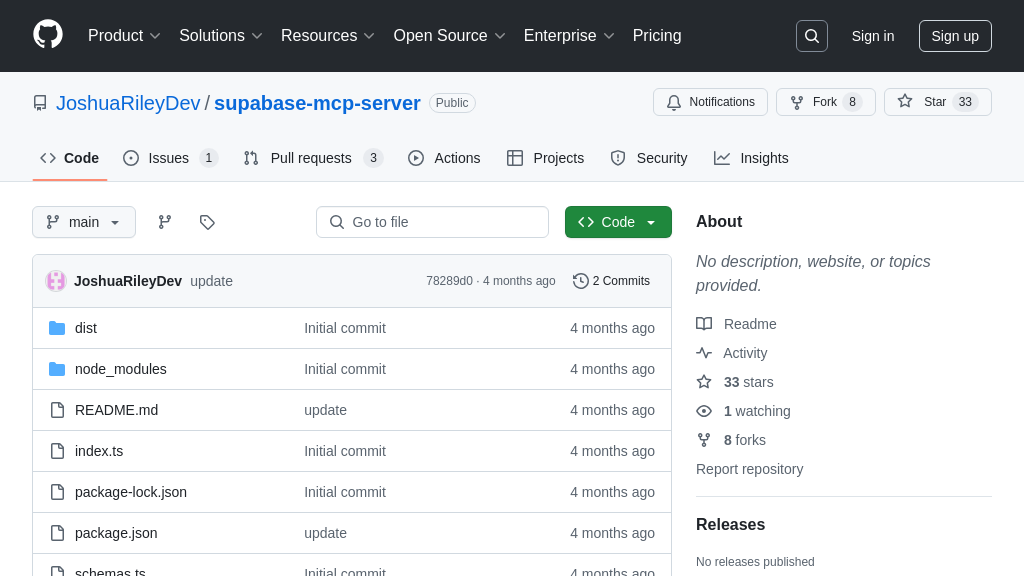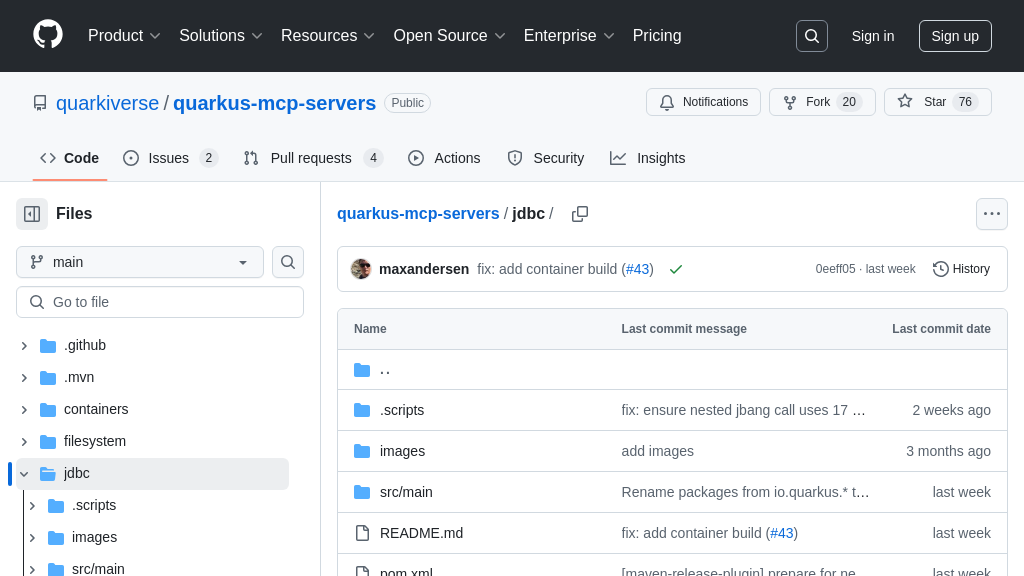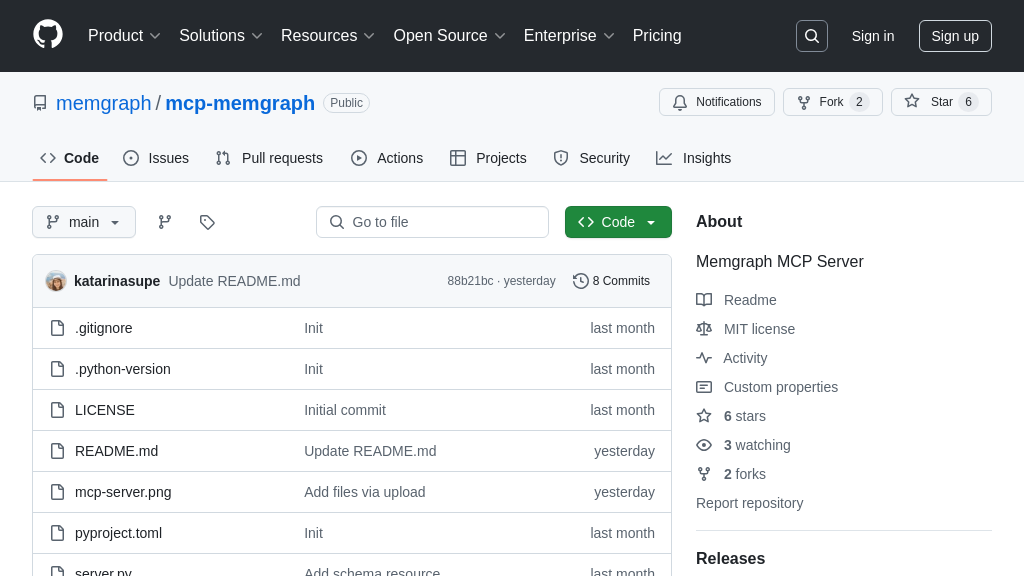spring-ai-mcp
Spring AI MCP: Java SDK for integrating AI models into Spring applications via the Model Context Protocol (MCP).
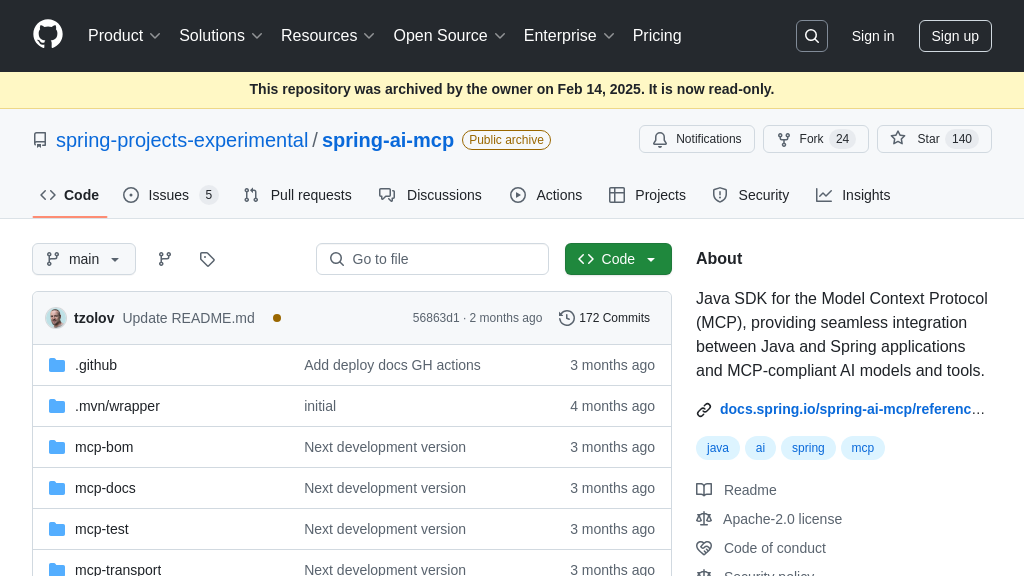
spring-ai-mcp Solution Overview
Spring AI MCP provides a robust Java SDK and Spring Framework integration for the Model Context Protocol, enabling Java applications to interact seamlessly with AI models. It offers both synchronous and asynchronous MCP Client and Server implementations, supporting standard MCP operations like tool discovery, resource management, and prompt handling. Key features include Stdio and SSE transport implementations for diverse communication needs.
This solution simplifies AI integration by providing Spring-friendly abstractions for MCP clients and integration with Spring AI's function calling system. Developers benefit from auto-configurations and pre-built transports like WebFlux and WebMvc SSE, streamlining the development process. Spring AI MCP empowers developers to build intelligent Java applications with standardized AI model interactions, fostering efficient and reliable AI-driven solutions. It leverages Maven for easy installation and provides comprehensive documentation and example demos for quick start.
spring-ai-mcp Key Capabilities
Standardized AI Model Interaction
Spring AI MCP provides a standardized way for Java applications to interact with AI models and tools, abstracting away the complexities of different AI platforms. It achieves this through the implementation of the Model Context Protocol (MCP) specification, offering both synchronous and asynchronous client and server implementations. This standardization allows developers to easily switch between different AI models and services without significant code changes, promoting flexibility and reducing vendor lock-in. The framework supports standard MCP operations like tool discovery, resource management, and structured logging, ensuring consistent behavior across different AI integrations.
For example, a financial application can use Spring AI MCP to connect to various AI models for sentiment analysis of news articles or fraud detection, without needing to implement custom integration logic for each model. The application can discover available tools, manage resources like API keys, and log interactions in a structured manner, all through the standardized MCP interface.
Flexible Transport Implementations
Spring AI MCP offers a variety of transport implementations to suit different communication needs between Java applications and AI models. These include Stdio-based transports for process-based communication, Java HttpClient-based SSE clients for HTTP streaming, and Servlet-based SSE servers for HTTP SSE Server streaming using traditional Servlet APIs. The availability of multiple transport options allows developers to choose the most efficient and appropriate method for their specific use case, whether it's local process communication or real-time streaming over HTTP. Optional transports like WebFlux SSE and WebMvc SSE further enhance flexibility by integrating with Spring's reactive and traditional web frameworks.
Consider a real-time chatbot application that needs to stream responses from an AI model. Spring AI MCP's WebFlux SSE transport can be used to establish a reactive HTTP connection with the AI model, allowing for efficient and low-latency streaming of responses to the user. Alternatively, a batch processing application can use the Stdio transport to communicate with an AI model running as a separate process, processing data in chunks and minimizing network overhead.
Spring AI Integration
The Spring AI MCP module seamlessly integrates with Spring AI's function calling system, providing Spring-friendly abstractions for MCP clients and auto-configurations. This integration simplifies the development process for Spring developers by leveraging familiar Spring concepts and conventions. By integrating with Spring AI's function calling, Spring AI MCP enables AI models to directly invoke functions within the Spring application, creating a powerful and flexible interaction model. The auto-configurations further streamline the setup process, reducing boilerplate code and allowing developers to focus on the core logic of their AI integrations.
For instance, a Spring-based e-commerce application can use Spring AI MCP to connect to an AI model that recommends products based on user preferences. The AI model can then use Spring AI's function calling to directly access the application's product catalog and user data, enabling personalized recommendations in real-time. The Spring-friendly abstractions and auto-configurations simplify the integration process, allowing developers to quickly build and deploy AI-powered features.
